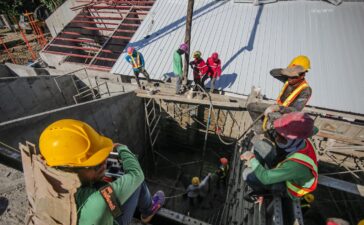In the realm of modern infrastructure projects, the importance of electrical design consultants cannot be overstated. These professionals play a pivotal role in ensuring the success, safety, and efficiency of various construction endeavours, from commercial buildings to industrial facilities and residential complexes. Through their expertise in electrical systems and innovative design strategies, electrical design consultants contribute significantly to the development of sustainable and technologically advanced infrastructure.
One of the primary responsibilities of electrical design consultants is to create comprehensive electrical plans and specifications for construction projects. This involves collaborating closely with architects, engineers, contractors, and clients to understand their specific requirements, goals, and budget constraints. By conducting thorough site assessments and feasibility studies, electrical design consultants can develop tailored solutions that meet the unique needs of each project while adhering to industry standards and regulations.
Moreover, electrical design consultants are tasked with integrating cutting-edge technologies and sustainable practices into their designs to enhance energy efficiency, minimize environmental impact, and optimize performance. This includes incorporating renewable energy sources, energy-efficient lighting systems, smart building automation, and advanced power distribution systems to create buildings that are not only functional but also environmentally responsible and cost-effective to operate

Furthermore, electrical design consultants are responsible for ensuring the safety and reliability of electrical systems within buildings and infrastructure projects. This includes conducting rigorous risk assessments, electrical load calculations, and fault analysis to identify potential hazards and vulnerabilities. By implementing robust safety measures and compliance with electrical codes and standards, electrical design consultants help mitigate the risk of electrical accidents, fires, and equipment failures.
Additionally, electrical design consultants play a crucial role in optimizing the efficiency and performance of electrical systems to meet the evolving needs of modern society. This involves designing scalable and adaptable solutions that can accommodate future growth, technological advancements, and changes in occupancy or usage patterns. By leveraging their expertise in power distribution, lighting design, renewable energy integration, and building automation, electrical design consultants can create flexible and resilient electrical infrastructure that can withstand the test of time.
Moreover, electrical design consultants serve as valuable advisors and liaisons between project stakeholders, regulatory authorities, and utility providers throughout the design and construction process. They provide expert guidance and recommendations on electrical design principles, equipment selection, cost estimation, and project scheduling to ensure seamless coordination and collaboration among all parties involved. This proactive approach helps streamline the project delivery process, minimize delays and cost overruns, and ensure compliance with all relevant regulations and standards.

Furthermore, electrical design consultants play a vital role in optimizing the energy performance and sustainability of buildings and infrastructure projects. By implementing energy-efficient lighting, HVAC, and control systems, as well as integrating renewable energy sources such as solar, wind, and geothermal power, electrical design consultants help reduce energy consumption, lower carbon emissions, and enhance overall environmental performance. This not only benefits the environment but also contributes to long-term cost savings and operational efficiency for building owners and occupants.
Electrical design consultants play a critical role in the planning, design, and implementation of electrical systems for a wide range of infrastructure projects. Through their expertise in electrical engineering, innovative design strategies, and commitment to safety and sustainability, these professionals contribute significantly to the development of efficient, reliable, and technologically advanced buildings and infrastructure.






